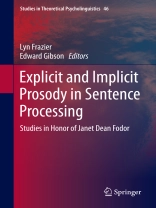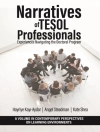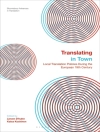Top researchers in prosody and psycholinguistics present their research and their views on the role of prosody in processing speech and also its role in reading. The volume characterizes the state of the art in an important area of psycholinguistics. How are general constraints on prosody (‘timing’) and intonation (‘melody’) used to constrain the parsing and interpretation of spoken language? How are they used to assign a default prosody/intonation in silent reading, and more generally what is the role of phonology in reading? Prosody and intonation interact with phonology, syntax, semantics and pragmatics and thus are at the very core of language processes.
İçerik tablosu
Introduction: Prosody and Sentence Processing by Lyn Frazier and Edward Gibson.- Part I Explicit Prosody.- 1. Extraposition and Prosodic Monsters in German by Caroline Féry.- 2. Prosodic Realizations of Information Focus in French by Claire Beyssade, Barbara Hemforth, Jean-Marie Marandin and Cristel Portes.- 3. Clefting, Parallelism and Focus in Ellipsis Sentences by Katy Carlson.- 4. The Effect of Phonological Encoding on Word Duration: Selection takes time by Duane Watson, Andrés Buxó-Lugo, & Dominique C. Simmons.- 5. Prosody and Intention Recognition by Michael Tanenhaus, Chigusa Kurumada and Meredith Brown.- 6. Prosody, Performance, and Cognitive Skill: Evidence from Individual Differences by Fernanda Ferreira and Hossein Karimi.- 7. Processing, Prosody and Optional to by Thomas Wasow, Roger Levy, Robin Melnick, Hanzhi Zhu and Thomas Juzek.- Part II Implicit Prosody.- 8. The Roles of Phonology in Silent Reading: A Selective Review by Charles Clifton Jr..- 9. Empirical Investigations of Implicit Prosody by Mara Breen.- 10. How Prosody Constrains First-pass Parsing During Reading by Markus Bader.- 11. Prominence in Relative Clause Attachment: Evidence from Prosodic Priming by Sun-Ah Jun and Jason Bishop.- 12. The Interplay of Visual and Prosodic Information in the Attachment Preferences of Semantically Shallow Relative Clauses by Eva Fernández and Irina Sekerina.- 13. The Implicit Prosody of Corrective Contrast Primes Appropriately Intonated Probes – for some readers by Shari Speer and Anouschka Foltz.- 14. Inner Voice Experiences During Processing of Direct and Indirect Speech by Bo Yao and Christoph Scheepers.












